As Western media focuses on the Crimean crisis, Russia intensifies its assault on civil society.
When Nikolai Gogol wrote about the winged troika in his 19th century masterpiece on provincial corruption, The Dead Souls, little did he know that he was creating a perennial image that would come to represent Russia for centuries to come. Three powerful animals, a fury of motion, never to be overtaken, like a lightning bolt crashing from the skies. Where was it going? To that, alas, there was no answer.
What Gogol was referring to was the "mysterious Russian soul." A strong-willed, passionate people, we are never quite understood, because we are unpredictable. It is indicative of how we view ourselves: unique, unbeatable, great.
At the close of the Sochi Olympics in February, President Vladimir Putin said the games had been more than an open door to Russia — it was the opening of the Russian soul to the world. There was nothing to be afraid of anymore, Putin told journalists, we are ready for cooperation.
What the Olympics revealed, however, was a very dark side of that inner sanctum — a darkness that appears to have been eclipsed by the smooth success of the games. The thousands of migrant workers who have not been paid, the forced evictions in Sochi to make way for construction, rampant corruption, environmental damage and anti-gay vigilantism, all created a picture of Dorian Grey all over again: a presentable façade with a sinister collection of skeletons, not in the attic, but instead spilling from behind the front door.
Despite initial scrutiny by the world press before the Olympics, the release of Pussy Riot members and Mikhail Khodorkosvky from prison in February, the euphoria of Russia's Olympic performance and later the crisis in Ukraine have taken the spotlight off Russia's slow but steady crawl toward a humanist abyss. As controversy over Crimea was raging in the press, and while the world became absorbed in trying to predict Putin's next move, a number of remarkable violations received less attention than they deserved.
As We Know It
At the end of January, TV Rain (Dozhd), Russia's independent news channel, was taken off air. General Director Natalia Sindeeva was told by officials that the channel's coverage of the ongoing protests in Ukraine was "upsetting." The reason cited for refusing to support the channel by TV providers, however, was the online poll that sought to find out whether the epic siege of Leningrad (now St. Petersburg) by Nazi Germany during World War II was Joseph Stalin's mistake; should he have capitulated the city and saved countless thousands of lives?
Russian media law states that journalists are obliged to respect the rights and interests of citizens, and the media regulator claimed the poll violated this by offending the sentiments of veterans, much like Pussy Riot's mock-prayer legally offended religious believers. This was enough to disable the network across most of Russia, leading to an 80% loss of its profits.
On February 24, over 200 people were detained for protesting the verdict in the Bolotnaya case that saw seven antigovernment demonstrators sentenced for assault. Among them was Boris Nemstov, a prominent opposition leader, and Alexei Navalny, an anticorruption campaigner who recently received a suspended sentence in a questionable corruption case himself. Navalny's popular blog, which publishes investigations of money laundering and theft by government officials, was recently blocked, following the prosecutor general's office allegation that its authors had been involved in inciting mass protests.
Echo Moscow, Russia's liberal radio station, had its site suspended until it agreed to take Navalny's blog off its homepage. Navalny currently remains under house arrest, forbidden to leave his apartment, use the phone, mail or the Internet until April 28.
The second week of March saw the firing of Galina Timchenko, the editor-in-chief of Lenta.ru. Russia's most popular independent news site received a warning following a hyperlink to an interview with Ukraine's Right Sector leader Dmitri Yarosh. Timchenko was replaced by a pro-Kremlin candidate, prompting the exodus of its editorial staff.
Such measures are made possible by the passing of an Internet law that came into effect on February 1, which allows the media regulator, Roskomnadzor, to suspend any site that advocates extremism or calls for mass disturbances. On February 27, another law was passed literally overnight that requires all Internet providers to register as well as compile information on its users for a period of six months that will be available to regulators.
In a country where young mothers can get two years in prison for an anti-Putin song, "extremism" is a vague concept. If you remember the controversial law concerning "foreign agents" from 2012, a proposal to apply it to media outlets has made a reappearance at the Duma again. According to grani.ru, a draft proposed in 2012 was condemned by the Kremlin as damaging to the ruling party. But there is nothing to suggest the mood has not changed.
And last, but not least, The Moscow Times reported that a bill was introduced to the Duma that will abolish mayoral and city council elections. Gubernatorial elections were already suspended in 2004, with Putin appointing governors across the country. With corruption eating away around 17% of Russian GDP, the circle of power is shrinking to a criminal cabal, and information about the workings of power is becoming increasingly controlled. As the open letter of resignation of Lenta.ru editors poignantly highlighted: "It's not that we have nowhere to work. It's that you have nothing more to read."
The Cold War Chessboard
Interestingly enough, Putin's approval ratings have exceeded their three-year high and are currently over 70%, reflecting on his firm stance on Crimea. While the world watched in shock as Russia's brief war with Georgia unfolded in 2008, the Russian president's approval ratings were nearing 90%.
The notion that Russia can only be tamed by a despot seems eradicable, and a show of a strong, masculine hand helps explain the president's popular support base. Nikolai Karamzin, a famous Russian historian, wrote: "Autocracy has founded and resuscitated Russia. Any change in its political constitution has led in the past and must lead in the future to its perdition." This is exactly why many Russians still view Mikhail Gorbachev — hailed widely across the world as an iconic figure who helped end the Cold War — as a weakling, a loser, and a mumbling idiot.
Putin has made a profession of cultivating not only his own image as a strongman, but also of reinvigorating Russia's lost grandeur. The fear after the collapse of the Soviet Union and Boris Yeltsin's turbulent years in power that Russia might slide into international insignificance was often expressed by Putin. Russia had felt, often with good reason, as being circumvented on the international arena, its interests and worldview ignored.
President Bill Clinton's bombing of Serbia without a United Nations resolution was viewed with alarm, as was the invasion of Iraq and, more recently, the Libyan campaign. (Given the highly volatile situation on the ground in Muammar Qaddafi's former dominion, Russia has every right to say, "I told you so.")
The unilateral withdrawal of the US from the Anti-Ballistic Missile Treaty in 2002, and the consequent plans to position the ballistic missile defense shield in eastern Europe created tensions, still ongoing. And there is the point, a sore one to this day, of the alleged promise made to Gorbachev by then-Secretary of State James Baker that NATO would "not expand one inch to the east." The Baltic States NATO accession of 2004, and the subsequent discussions of Ukraine and Georgia's membership, brought America too close for comfort.
President Putin has done his fair share to contribute to antagonizing the West from his side.
The Dima Yakovlev Law, designed as a response to the US Magnitsky Bill, lists a number of measures against those committing human rights offenses against Russian citizens, including a controversial prohibition of adoption of Russian orphans by US parents. The ludicrous suggestion that Secretary of State Hillary Clinton was somehow behind the 2011 antigovernment protests was laughable, but indicative of the narrative weaved by the Kremlin of foreign agents out to undermine Russia's bid for greatness.
Putin's 2013 editorial in The New York Times is a case in point. He writes:
"It is alarming that military intervention in internal conflicts in foreign countries has become commonplace for the United States. Is it in America's long-term interest? I doubt it. Millions around the world increasingly see America not as a model of democracy but as relying solely on brute force, cobbling coalitions together under the slogan 'you're either with us or against us.'"
His is a clear stance vis-à-vis America and its power. Yet with the Crimean government ready to nationalize Ukrainian assets — as we have seen in recent days, by force — and to change the clocks to Moscow time, Putin could do well by listening to his own rhetoric, or at least his speech and ghostwriters.
Under Pressure
Fireworks crowned the breaking-speed formalization of Crimea's return to Russia in a fait accompli. As an MP suggested to Echo Moscow in a recent interview: "Crimea will be remembered as a place where Russia stood up to Washington and ended American dreams of creating a 'unipolar world.'"
Vladislav Sukrov, Putin's aide whose name appears on the US sanctions list, told TV Rain: "I think that this list is like an Oscar nomination, a type of confirmation that we are doing the right thing. I would call it a prize and a direct recognition of the rightfulness of our actions."
The media uproar that spun the Second Cold War scenario was sensationalist and revealed a simplistic mentality and a compartmentalized perception of international politics, wired by atavistic ideas. Yet the Russian government's positioning itself as a counterweight to US influence — in response to US influence — is a new reality that needs to be addressed.
It is difficult to assess whether Putin is playing on the public anti-Western sentiments or whether the Kremlin's rhetoric is fuelling it. The answer is probably a symbiosis of the two. But what it reveals is that the more Russia feels under pressure from the West, the more defiant its stance.
To use Putin's own metaphor: "If you press a spring hard enough, it will eventually unravel." No one could predict just what that might mean. Otto von Bismarck once said the secret of politics is to have a good treaty with Russia. Had he been alive today, he would have added America to the formula. Creating a better personal relationship with Putin, and a space for dialogue between the two powers, seems wiser than further alienating him and thereby entrenching Russia's antagonism.
The Mysterious Russian Soul
As the Kremlin tightens its grip on Russia's civil society, with the recent display of military jingoism that, had the Ukrainian troops not showed such restraint, might have seen a much less happy ending, the majority of the Russian people are silent. A distant echo of the 2011 protests, the weekend of the referendum saw the "March of Peace" against the Crimean incursion, which saw over 50,000 protestors gather in Moscow. But a simultaneous rally in support of Crimea and against "fascism in Ukraine" drew a much smaller, but much more worrying crowd.
What is baffling in all this is the apparent willingness of the population to surrender their basic rights and freedom for concepts that have no bearing on their daily lives. You can't butter your bread with international prestige, although you could probably keep quite warm under a propaganda blanket.
But when it is clear the "power vertical" is absolute, the judiciary is not independent, the police force, along with every other budget sector, is riddled with corruption, and that independent journalists are not safe, then one questions the moral compass of such a society.
Russia had spent centuries dormant under Tsarist rule, and over seven decades submissive to the Communist Party. Its 1917 and 1991 revolutions were elite affairs, more like coup d’états than popular uprisings. Unfortunately, it appears that again the majority of the Russian people are content to surrender themselves to the mercy of an autocrat in return for an inflated sense of national pride, economic crumbs that fall off the Kremlin banquet table, and a good spectacle.
Greatness is not measured by military capability, land mass, or geopolitical advantage alone. Russian people have to decide what kind of society they want to live in. Right now, their subservience to the Kremlin seems to be taking them further away from the idea of democracy they fought to establish as the Soviet Union collapsed. And the current trend of Western antagonism toward Russia, and her continued isolation from its liberal norms, will only aggravate this negative progression.
*[This article was published in partnership with the Foreign Policy Association.]
The views expressed in this article are the author's own and do not necessarily reflect Fair Observer’s editorial policy.
Image: Copyright © Shutterstock. All Rights Reserved
Support Fair Observer
We rely on your support for our independence, diversity and quality.
For more than 10 years, Fair Observer has been free, fair and independent. No billionaire owns us, no advertisers control us. We are a reader-supported nonprofit. Unlike many other publications, we keep our content free for readers regardless of where they live or whether they can afford to pay. We have no paywalls and no ads.
In the post-truth era of fake news, echo chambers and filter bubbles, we publish a plurality of perspectives from around the world. Anyone can publish with us, but everyone goes through a rigorous editorial process. So, you get fact-checked, well-reasoned content instead of noise.
We publish 2,500+ voices from 90+ countries. We also conduct education and training programs
on subjects ranging from digital media and journalism to writing and critical thinking. This
doesn’t come cheap. Servers, editors, trainers and web developers cost
money.
Please consider supporting us on a regular basis as a recurring donor or a
sustaining member.
Will you support FO’s journalism?
We rely on your support for our independence, diversity and quality.


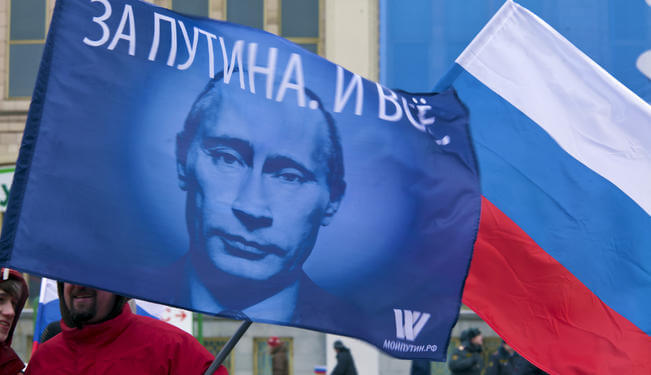

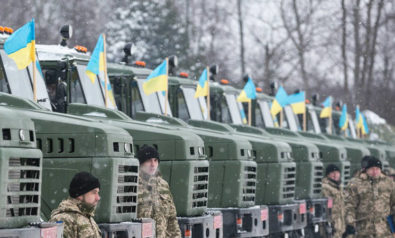

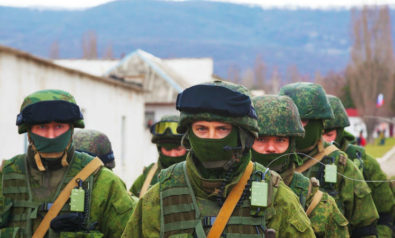
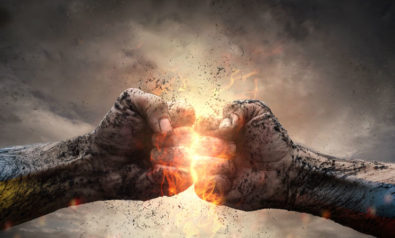
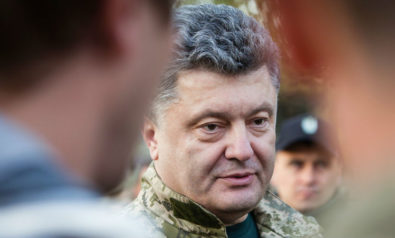
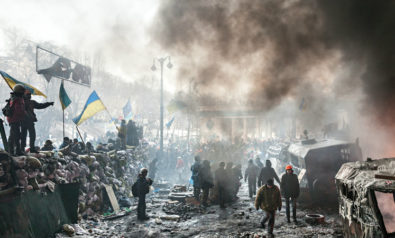


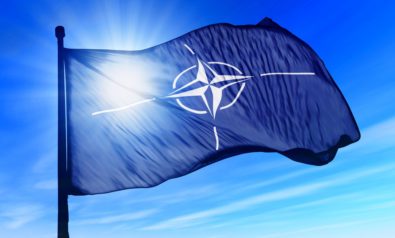

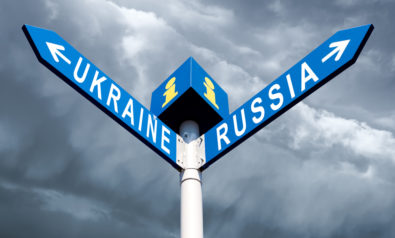
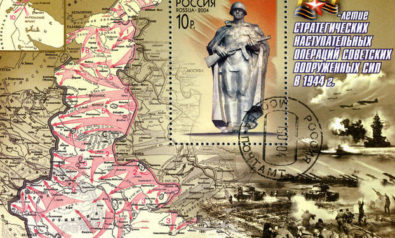
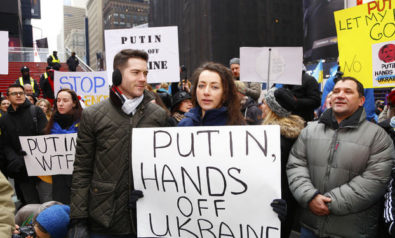
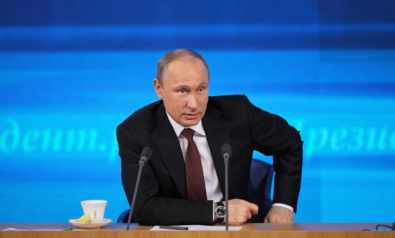
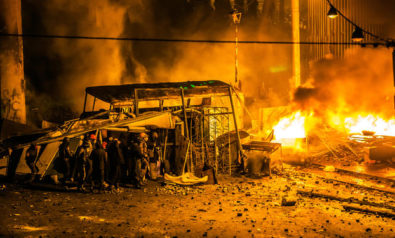

Comment